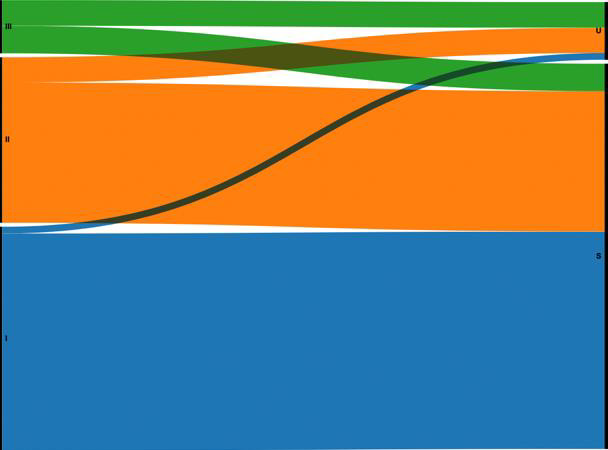Impact of Automaticity Skills on Students’ Success in O-Chem I
Opinion
The Texas Networking for Science Advancement (NSA) team previously reported in this journal on how student’s automaticity ability (what can be done without the use of a calculator) influences their success in general chemistry [1,2]. The published general chemistry statistics for the MUST (Math-Up Skills Test) consistently support that this assessment is highly reliable (KR-20 > .80), has good internal consistency (Cronbach’s alpha > .85), and the Cohen’s d for the MUST is consistently > 1.0 indicating a large effect size for a population of over 10,000 [2]. Given these statistics, the NSA team turned its attention to how do automaticity skills assessed by the MUST reflect students’ success in first-semester organic chemistry (O-Chem I), a course commonly referred to as the “pre-med killer” or the hardest pre-med course. If you ask a student who has taken organic chemistry what they recalled most about the course, there is a slim chance you would hear them reference mathematics. However, mathematics does exist in O-Chem in forms that reflect lessons from the foundation courses that students have taken and passed, like general chemistry and calculus. Some example lessons in O-Chem that need calculations include:
Drawn chemical structures/empirical formulas and calculating the molecular weight
PH determination
Enthalpy and entropy to determine endothermic/exothermic reaction conditions
Bond dissociation energies of molecules
Kinetics and rate equations
Energy of activation with the Arrhenius equation
Percent yield, weight/weight%, volume/volume%
Conversions factors (mole to mmol) or concentrations
J-splitting in nuclear magnetic resonance (NMR) spectra
Molar extinction coefficient (Ɛ) from Beer-Lambert equation in UV-Vis
Change in wavelength in infrared spectroscopy bands when groups shift positions
Knowing that MUST skills are linked to success in general chemistry, led the NSA team to investigate how students’ arithmeticautomaticity ability might lead to a better understanding of whom will succeed in O-Chem I. In this study, the MUST was given to O-Chem I students (n = 99, no incompletes or withdrawals were considered in the analysis) at the beginning of a semester at two Texas universities, one public Hispanic Serving Institution (HSI) and one private Hispanic-emerging institution. The MUST scores were then matched to the respective students’ final course grades and compared. A copy of the 12 min, 20-question MUST is available in Williamson, et al. [3]. Surprising was that these results continued to mimic those of general chemistry students (Figure 1). The left side of Figure 1 depicts three groups (I – III) of students. The MUST mean and SD are 9.99 (5.50). Group I students (bottom, blue group) are those who scored above average (> 13 of 20 questions) on the MUST. Students in group II (middle, orange group) are those who scored in the average group range (7-13 correct questions), and group III (top, green group) consists of students who scored < 7 correct. On the right side of (Figure 1), the two groups U and S reflect those who completed O-Chem I successfully (grades of A, B, or C) and those who did not attain at least a grade of C or a numerical average of > 69.5%. We did not hypothesize that there would be any relationship between students’ MUST scores and their success in O-Chem I, but as can be seen, almost all group I students were successful in O-Chem I as were most of the students in the average group.
Figure 1: Alluvial diagram comparing MUST scores to completion level of O-Chem I students. Left vertical bar identifies three MUST groups (I = above average scores, II = average scores, and III = below average scores). Right vertical bar identifies two student groups (U = unsuccessful and S = successful). Alluvial diagram source: https://rawgraphs.io/learning/how-to-makean- alluvial-diagram/#01-paste-your-data.
About half of group III students (identified the first week of class!) failed to successfully complete O-Chem I and are therefore not allowed to progress to O-Chem II and probably have a slim chance of continuing the pre-med track. Mathematics and underlying thought processes are prevalent in some form in most chemistry courses, including organic chemistry. Success on the MUST goes beyond basic arithmetic understanding and reflects what students have “overlearned.” Processing an ability to retain certain facts in long-term memory provides an edge to succeed in O-Chem I. It is students’ prior knowledge that continues to be the most predictive factor of determining success in the next course. The knowledge a student brings to the next course is always confronted with new applications that must be incorporated into their chemical repertoire, but as has again been shown, the more arithmetic facts that can be correctly recalled without the use of a calculating device, the more successful on the average students will be. The MUST is a fast, simple assessment of students’ arithmeticautomaticity ability that can be used to determine those who are predicted to struggle in only 12 min. the first day of class.
For more Articles on: https://biomedres01.blogspot.com/




No comments:
Post a Comment
Note: Only a member of this blog may post a comment.